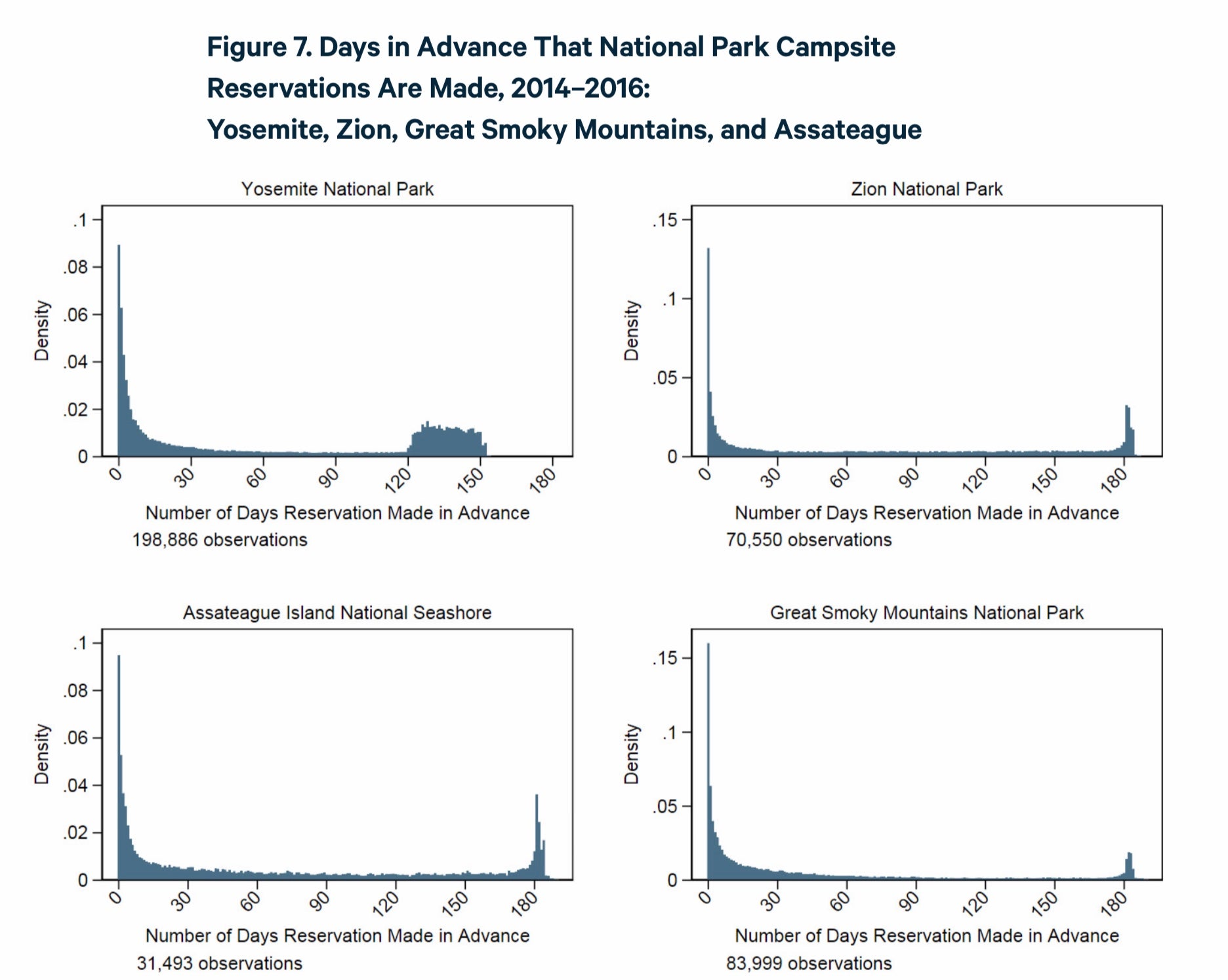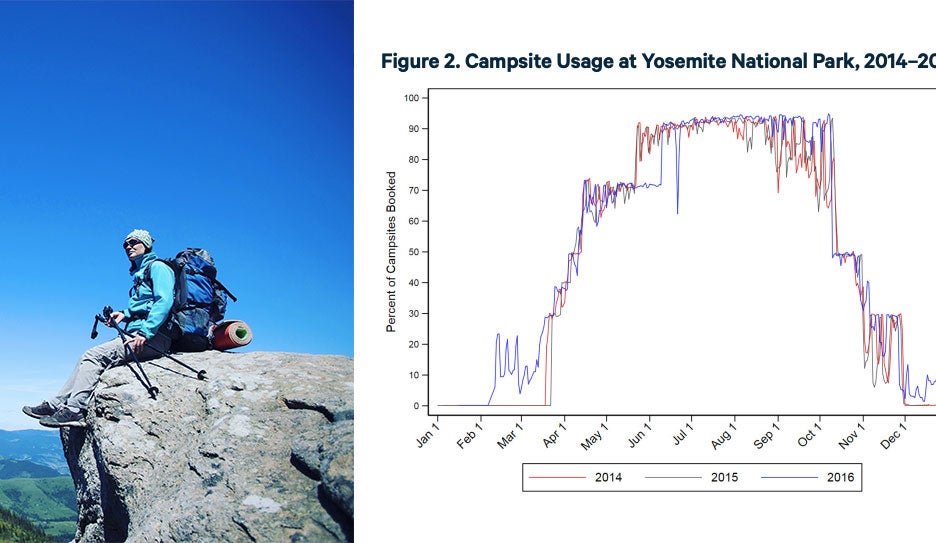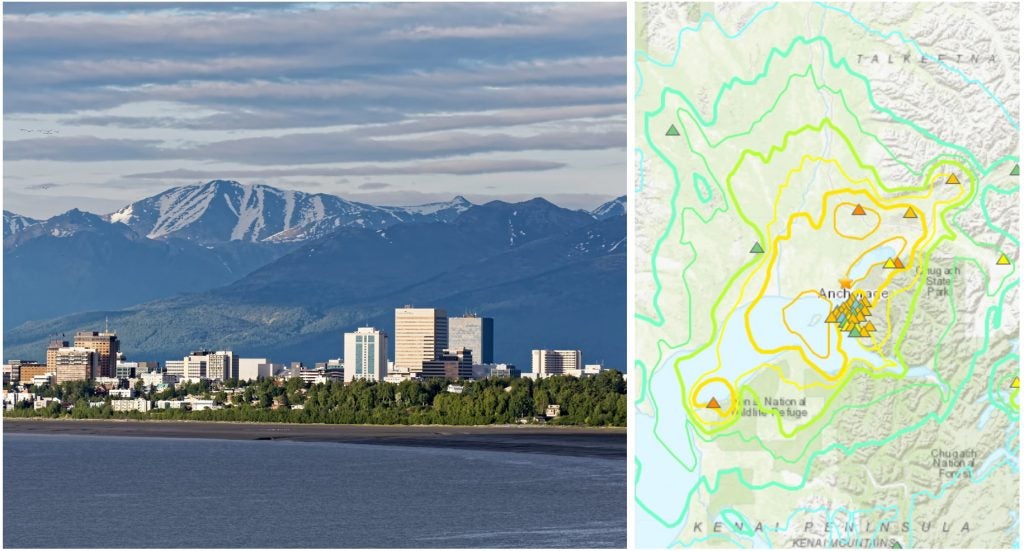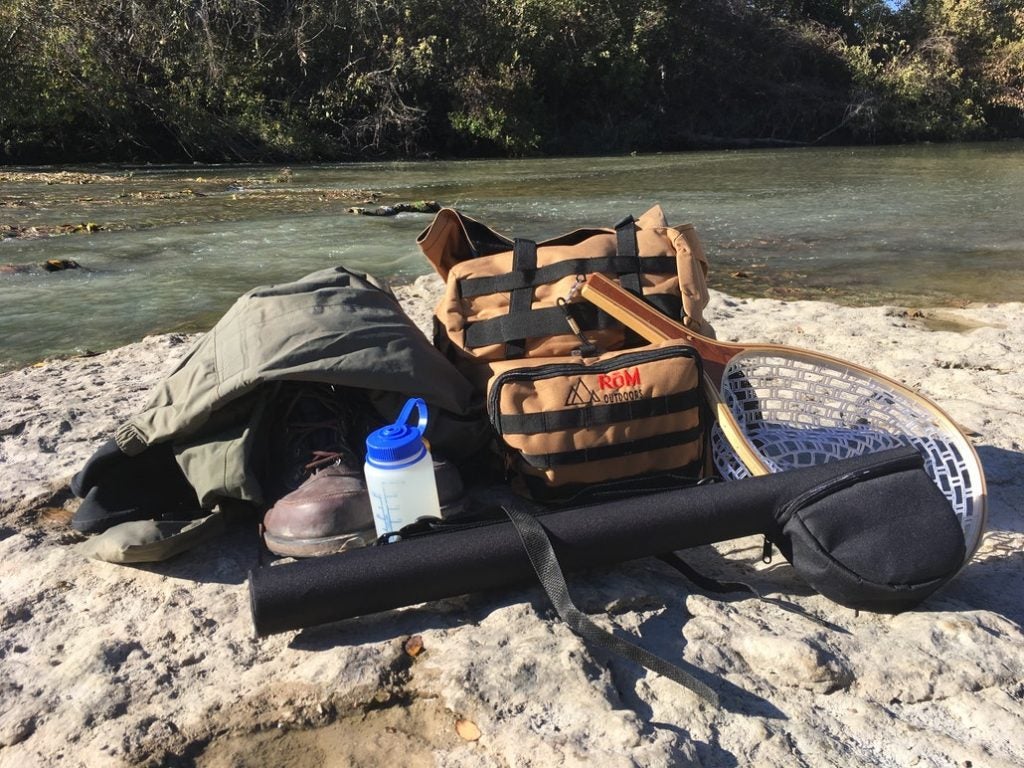Many campers reserve campsites at popular National Parks months in advance when the slots first become available. Then, they cancel last minute.
That’s according to a new report by Resources for the Future, an independent policy and economic research organization in Washington, D.C. Researchers analyzed the data from recreation.gov, the website where campers can book their trips on public lands, and uncovered some interesting trends. This information comes in handy both for policymakers who want to raise money from campers to maintain National Parks and campers themselves.
The report found a peak in National Park campground reservations 180 or 150 days before the trip. That’s when the slots first become available on the website. Some of those people then cancel their reservations at the last minute, freeing up slots for last-minute planners.
Most of the reservations are made 30 days or less before the trip, with a peak one day before the trip.
For National Park Campground Reservations, Book ASAP

Image from Resources for the Future (CC BY 4.0)
Here are some other trends outlined in the report.
- Parks generally fill up during peak season, but activity varies depending on the day, the season, and the park.
- Campers tend to visit National Parks close to home — less than 500 miles away — and stay for two nights. Longer and farther trips are rare. And, perhaps not surprisingly, those who live in states with lots of national parks, like Colorado, go camping more often.
- Campers visiting National Parks live in zip codes with average incomes that are similar to or only very slightly higher than that of the U.S. population as a whole.
The report’s overall goal is to help the National Park Service in its decisions about fee changes. NPS is increasing fees at its most popular parks $5 to $10 starting this year. It had originally scheduled an even larger hike but changed its plan following public backlash.
The authors of the RFF report recommend more dynamic pricing in National Parks, like charging more during the peak season. They also recommend higher cancellation fees to discourage last-minute switching, which can be inefficient, and to raise much-needed funds for the park.
Margaret Wells, a senior fellow at RFF and one of the writers of the report, said that she hopes the National Park Service does more detailed analysis with the data to inform changes to fees or the reservation system.
“This report only begins to scratch the surface,” she said.
The Dyrt is the only camping app with all of the public and private campgrounds, RV parks, and free camping locations in the United States. Download now for iOS and Android.Popular Articles:
Articles on The Dyrt Magazine may contain links to affiliate websites. The Dyrt receives an affiliate commission for any purchases made by using such links at no additional cost to you the consumer.



